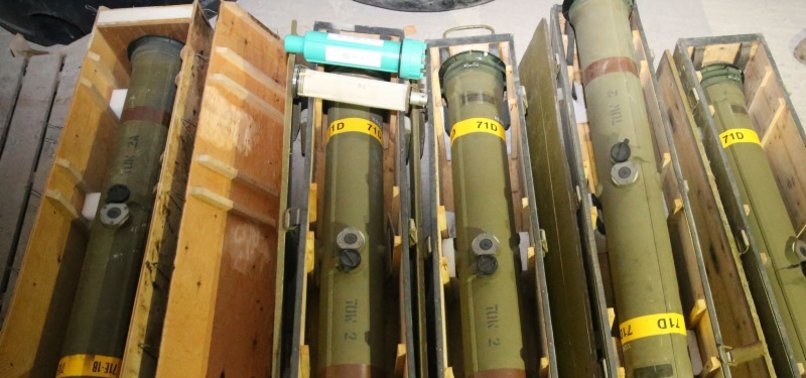With US arms moving away, Israel must rethink its dependency on Washington
Israeli decision-makers believe that if a real emergency arises, the US will show up by helping it. But its shifting priorities should set off alarm bells.
The US decision to shift arms from its reserve depots in Israel to Ukraine was made during the term of the previous Israeli government. It has nothing to do with the latest tension between Jerusalem and Washington.
What is concerning is that the administration has yet to indicate when it will replenish the stockpile of munitions in Israel. In the wake of the shifting priorities across the pond and the dissatisfaction with the current policies of the Israeli government, it is not inconceivable that this state of limbo could last for a while.
One doesn't have to be an expert in US-Israel relations to see the rather frosty relationship between the White House and the Prime Minister's Office. The diplomatic rift has yet to adversely impact the security cooperation and if the past is any indication, this will stay strong throughout this crisis. But, to quote from the Bible, Riches are not forever, nor does a crown endure to all generations. There are some experts who believe that the security ties could be threatened if the US sees uncertainty when it comes to Israel's democratic character and shared values.
One cannot overstate the importance of the bilateral security ties and Israel's dependency on the US – tactically, strategically, and of course, diplomatically. Israel depends on US manufacturing and supply of arms and enjoys extensive intelligence sharing. Likewise, it benefits by being able to leverage this brave friendship on the world stage, particularly in the region.
When the US has your back, people treat you differently. There are quite a few countries that have viewed Jerusalem as their entry ticket to Washington. One of the main factors that drew countries in the region to sign the Abraham Accords with Israel was their desire to promote their interests in Washington. Their rationale was that if they show a positive attitude toward Israel, the latter would help do its bidding in the halls of the American government.
However, the regional players have already come to the conclusion that the Middle East is not a top priority for the current White House occupant, who is keen to move forward with the extraction of the US. The fact that Saudi Arabia chose to make amends with Iran shows that it, too, understands that the US will not provide the solution regarding Tehran. Israel is concerned that countries that have publicly forged relations under the Abraham Accords with the Jewish state will follow Saudi Arabia and turn eastwards.
According to reports in the US media as of late, the American weapon manufacturers have not been able to keep up with the demand for shipments to Ukraine. The fact that the US has been depleting the storage facilities it has kept here since the 1970s has been a source of concern for Israeli defense officials.
Against the backdrop of ongoing tension that could result in a multi-theater conflagration, Israel's security establishment would want to see the arms stay in Israel. Israel decision-makers believe that if a real emergency arises, the US will show up by helping it. But the shifting priorities and the ongoing tension between the countries should have Israel reassess its overall posture, potentially scaling back its heavy dependency on Uncle Sam, and be strong in its own right.

No comments:
Post a Comment